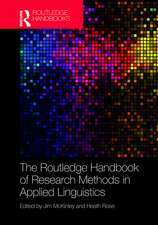The Bologna Process and its Global Strategy: Motivations and External Responses
Editat de Hannah Moscovitz, Hila Zahavien Limba Engleză Paperback – 24 iun 2024
Since its initiation in 1999, the Bologna Process has evolved into an important example of regional higher education policy coordination. Now with 48 signatory states both within and outside the European Union, the Bologna reforms have pushed forward an ambitious agenda for a European Higher Education Area (EHEA), and the EU specifically as it aims to consolidate its knowledge-economy. Alongside its regional focus, the Bologna Process has also promoted an international reach through its ‘global strategy’. Through this externalisation, the Bologna Process has become a point of reference for higher education internationalisation worldwide
Featuring examples of Bologna’s ‘reach’ from Oceania to North America and in between, the book offers a timely contribution to the understanding of the reform’s global influence. As a whole the contributions offer important insights to the understanding and conceptualisation of the EU’s global influence, comparative regionalism and global higher education development more broadly.
This book was originally published as a special issue of the European Journal of Higher Education.
| Toate formatele și edițiile | Preț | Express |
|---|---|---|
| Paperback (1) | 249.95 lei 6-8 săpt. | |
| Taylor & Francis – 24 iun 2024 | 249.95 lei 6-8 săpt. | |
| Hardback (1) | 764.20 lei 6-8 săpt. | |
| Taylor & Francis – 12 feb 2020 | 764.20 lei 6-8 săpt. |
Preț: 249.95 lei
Preț vechi: 324.57 lei
-23% Nou
Puncte Express: 375
Preț estimativ în valută:
47.83€ • 49.94$ • 39.49£
47.83€ • 49.94$ • 39.49£
Carte tipărită la comandă
Livrare economică 15-29 aprilie
Preluare comenzi: 021 569.72.76
Specificații
ISBN-13: 9781032838939
ISBN-10: 1032838930
Pagini: 148
Dimensiuni: 174 x 246 mm
Greutate: 0.27 kg
Ediția:1
Editura: Taylor & Francis
Colecția Routledge
Locul publicării:Oxford, United Kingdom
ISBN-10: 1032838930
Pagini: 148
Dimensiuni: 174 x 246 mm
Greutate: 0.27 kg
Ediția:1
Editura: Taylor & Francis
Colecția Routledge
Locul publicării:Oxford, United Kingdom
Public țintă
Postgraduate and Undergraduate CoreCuprins
Introduction; 1. The Bologna Process as a foreign policy endeavour: motivations and reactions to the externalisation of European higher education 2. The Bologna Process: an international higher education regime 3. Researching the European Higher Education Area external effectiveness: regime complexity and interplay 4. Internationalisation of higher education in a Canadian context: responses to the Bologna Process from Canadian universities 5. A clash of internationalizations: New Zealand and the Bologna Process 6. Higher education regionalism in Asia: what implications for Europe? 7. The Bologna Process in Israel as a reflection of EU-Israel relations 8. African higher education and the Bologna Process
Notă biografică
Hannah Moscovitz is a Postdoctoral Fellow at the University of Cambridge, Faculty of Education, UK. Hannah completed her PhD in the Department of Politics and Government at Ben-Gurion University of the Negev, Be'er Sheva, Israel, in 2018. Hannah previously worked as a Researcher and Head of International Projects at the Simone Veil Research Centre for Contemporary European Studies.
Hila Zahavi is the Director of the Simone Veil Research Centre for Contemporary European Studies at Ben-Gurion University of the Negev, Be'er Sheva, Israel. Her PhD research – completed in 2018 – dealt with higher education as tool in foreign policy. Currently her work is focused on EU-Israel relations, new methods of diplomacy and knowledge policies.
Hila Zahavi is the Director of the Simone Veil Research Centre for Contemporary European Studies at Ben-Gurion University of the Negev, Be'er Sheva, Israel. Her PhD research – completed in 2018 – dealt with higher education as tool in foreign policy. Currently her work is focused on EU-Israel relations, new methods of diplomacy and knowledge policies.
Descriere
This book critically reflects on the international function of the Bologna Process by exploring motivations and interests behind its ‘global strategy’ as well as how the reforms have been perceived and applied beyond Europe.This book was originally published as a special issue of the European Journal of Higher Education.


























